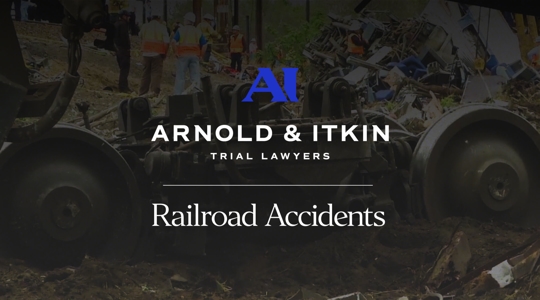- Railroad Industrial Hygiene Program
- Rulemaking, Approvals, and Exemptions
- Hazardous Materials Incident Reduction Program
- Tank Car Facility Conformity Assessment Program
- Tank Car Owner Maintenance Program Evaluations
- Spent Nuclear Fuel and High-Level Nuclear Waste Program
- Partnerships in Domestic and International Standards-Related Organizations
- Education, Safety Assurance, Compliance, and Accident Investigation
Hazardous Materials Transportation Endangers the Public
The transportation of hazardous materials accounts for the usage of over 1 million rail cars every year. HAZMAT safety issues come into play in these instances because any type of train accident that involves cargo of toxic substances could greatly jeopardize passengers and employees. For example, in Salt Lake City, March 2005, approximately 6,000 people were forced to evacuate when a toxic cloud filled the air. The emergency occurred when rail cars designed to transport sulfuric acid were compromised and released hazardous materials into the atmosphere. HAZMAT teams were unable to obtain cargo information from the tank operators and were forced to test the leaking material. The tanks were loaded with a mixture of acetic, hydrofluoric, phosphoric, and sulfuric acids that the tank cars were never designed to carry. Public health and welfare, not to mention the safety of emergency teams, were compromised by the reckless behavior of the tank car operators.
Clearly, the transportation of toxic cargo poses a great danger to everyone involved.
Although it may be a lucrative form of business for the train industry, it is one filled with great dangers that could substantially affect the lives of those who are injured. This is largely because of the fact that any accident in which a train carrying dangerous substances is involved will naturally lead to spillage and unsafe exposure to the harmful chemicals being carried. This type of exposure can easily and quickly lead to injury, illness and long-term disease, making it imperative to obtain a railroad injury attorney immediately after any incident of this nature.
In many disasters involving hazardous materials, emergency responders are less than familiar with measures that need to be taken to sustain this type of wreck. This is not only inconvenient, it is also dangerous to the passengers and workers onboard the train at the time of the accident. Too many things can go wrong when the operation and maintenance of a railroad or train car are not properly attended to. If failure to adhere to the laws that govern railroad safety and compliance have led to your accident, you should take action.
Talk to Our Top-Rated Team of HAZMAT Safety Lawyers: (888) 493-1629
We can quickly build a strong case in your defense, citing any failures to maintain standard operations of safe working conditions. This may include investigations into the toxic materials to which you were exposed. No matter what the specific circumstances of your case may be, our attorneys are on hand to help in any way that we can. If your injury or illness was caused by your employer's failure to adhere to safety guidelines, you should contact a qualified injury attorney at once. Arnold & Itkin LLP lawyers have successfully represented victims injured in railroad accidents. We can help you build a strong and persuasive case as quickly as possible.
Contact us by calling (888) 493-1629 to learn more about HAZMAT safety standards and how the law can be applied to your case. We will fight for the best results.
